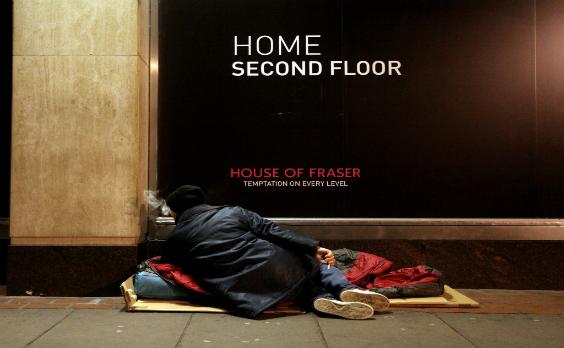‘Avalanche’ of homelessness expected as furlough and Universal Credit boost end
“More people are at risk of homelessness now than at any time in living memory,” Bird said. By Charlene Rodrigues


Homelessness will rise this autumn as furlough and Universal Credit schemes are set to end in September, The Big Issue has warned.
To prevent an “avalanche” of homelessness, the government must act now, the magazine says.
In the first quarter of 2021, there were 632 mortgage repossessions and rental evictions across the UK, the study found.
They are now warning with ongoing evictions and repossessions throughout the lockdown, homelessness could rise this autumn. Also, the cost of electricity and gas will rise, their research shows.
The magazine is urging the government to introduce means-tested grants or interest-free loans to repay arrears and suspend no-fault evictions until a Renters’Renters’ Reform Act.
“Millions of people in this country are behind in household bills, half a million are in rent arrears, and nearly 200,000 homeowners are in financial difficulty,” Lord John Bird, founder of The Big Issue, said.
“More people are at risk of homelessness now than at any time in living memory,” Mr Bird said.
Mr Bird said with 1.9 million jobs at risk of permanent loss from the pandemic; this should be ringing alarm bells throughout the country.
“The government was quick to support us when they put over 37,000 homeless people into accommodation in the first lockdown.”
“We need the public to start getting involved urgently by pressuring the government and local politicians to take this looming crisis seriously,” Bird said.
The Bank of England expects the unemployment rate to reach around 5.5 per cent in the autumn.
Even before the pandemic the gig economy contracts made it harder for young people to escape homelessness. The ONS estimated that the younger workers were disproportionately hit by joblessness among the general population.
Alicia Kennedy, director of Generation Rent, said that while the number of private renters getting Universal Credit has doubled since the start of the pandemic, the level of support is still inadequate to cover the rent.
More people are falling behind and are at risk of eviction.
“Even if their income recovers, it will be impossible to pay off all this debt while staying on top of other bills,” Ms Kennedy said.
“The government must step in and clear this rent debt and let renters get on with their lives. Otherwise, society will pay a higher price through a homelessness crisis.”
Paul Noblet, head of public affairs at Centrepoint, said that many people found themselves in rent arrears throughout the pandemic through no fault of their own.
“With lockdown being lifted, it’s easy to think the economic consequences of coronavirus will disappear too. Unfortunately, that is not the case, and that is why this campaign for substantial long-term support for tenants at risk of eviction because of arrears is so important.”
Join our commenting forum
Join thought-provoking conversations, follow other Independent readers and see their replies
Comments
Bookmark popover
Removed from bookmarks